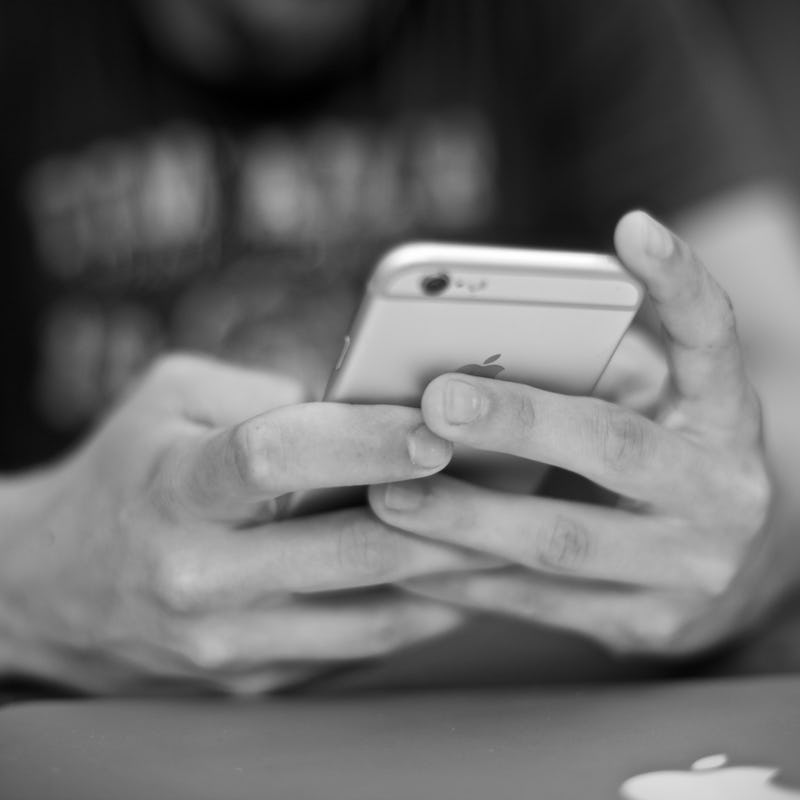Sarahah Could Be Good For Teens, Argues Psychologist
Anonymous feedback makes you a better person.

For more than three weeks, an anonymous messaging app with a hard-to-pronounce name has ruled as the most popular free app in the App Store with a measly 2.1-stars average and an ugly reputation as a platform for bullying. Sarahah, the app in question, burst onto the scene in July and almost immediately had teens scrambling to link the app’s anonymous messaging function to that other teen mainstay, Snapchat.
Saudi developer Zain al-Abidin Tawfiq originally created Sarahah for employees to offer feedback — or “Leave a constructive message :)” as it’s phrased in the app — to their bosses and co-workers under the protection of anonymity. Tawfiq soon found, however, that people wanted to know what their friends and family thought of them, too. And so Sarahah, a word that is derived from the Arabic word for “honesty,” was opened up to the general public.
But a question remains: Could Sarahah’s unfiltered feedback not spiral into hate and actually do something good?
Scientifically, the answer is a complicated one. And it comes down to evolution, according to Tasha Eurich, an organizational psychologist whose research and most recent book focuses on the science of feedback. Eurich traces our itching desire to know what other people think of us to our hunter-gatherer roots.
“In order to survive, we had to be part of a group,” she tells Inverse. “When we were doing something that was ruffling feathers, the group could ‘vote us off the island,’ so to speak. Being socially ostracized would literally mean death.”
Getting feedback is painful, activating the same parts of your brain that physical pain does, which means when you say you’d rather poke your eyes out than hear something negative about yourself, you’re not far off. Your brain goes so far as to release chemicals to ease your suffering, as if you were physically injured.
Eurich emphasizes the fact that everyone has the ability to learn to take feedback. “The people who are willing to be brave enough to do the work and make that commitment and question themselves are immensely more successful, happier, and confident.
“To me, that’s the most surprising finding,” Eurich continues, given that hearing feedback, in general, is rough. No one enjoys hearing that they are imperfect, annoying, or flawed, but she found that learning to take feedback and improve based on that assessment is something anyone can do. In fact, Eurich says that most people don’t start out as self-aware but learn to do so.
Sarahah has become a psychological live-action experiment focused on teenagers, a group whose reactions to anonymous feedback haven’t been previously studied. Scientists do know, however, from study after study that the brain is going through some really intense transformations as it goes from baby brain to adult brain.
Eurich worries that the anonymity is an open invitation to violent, destructive feedback. Malicious intent can seep through, and people can ultimately use feedback like a weapon, crushing fragile egos in ways that might turn out to be irreparable. Eurich says Sarahah users, in particular, should treat the app’s feedback mechanism with the same critical eye they may use towards fake news: Is it true? Is it accurate? Is it verifiable?
“They might be in a less confident and open position to take feedback,” Eurich says, repeatedly noting that teenage girls might be most at risk. “When people are developing their personalities, they fixate on negative things even more.”
Despite Sarahah’s shortfalls, Eurich thinks the app has huge potential for being a platform for positivity — if used correctly and carefully. “Everyone should get feedback,” Eurich says. “We hear things we already know. The things we don’t know can be positive gifts and strengths.”
That’s why Eurich thinks that teens on Sarahah deserve some praise for being open — at least on paper — to criticism. “They’re making the choice to be braver and wiser,” she said. Feedback seeking in this way might be narcissistic on the surface, but being open to criticism isn’t an easy thing, and Eurich commends that instinct.